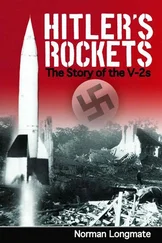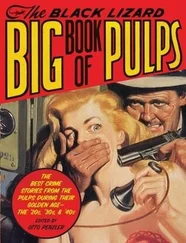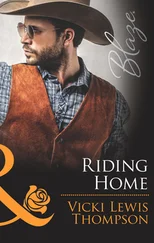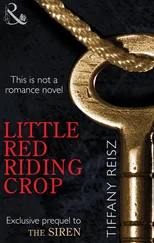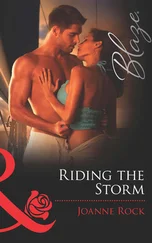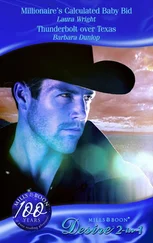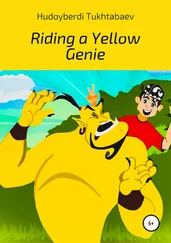Mike Mullane - Riding Rockets
Здесь есть возможность читать онлайн «Mike Mullane - Riding Rockets» весь текст электронной книги совершенно бесплатно (целиком полную версию без сокращений). В некоторых случаях можно слушать аудио, скачать через торрент в формате fb2 и присутствует краткое содержание. Жанр: Старинная литература, на английском языке. Описание произведения, (предисловие) а так же отзывы посетителей доступны на портале библиотеки ЛибКат.
- Название:Riding Rockets
- Автор:
- Жанр:
- Год:неизвестен
- ISBN:нет данных
- Рейтинг книги:3 / 5. Голосов: 2
-
Избранное:Добавить в избранное
- Отзывы:
-
Ваша оценка:
- 60
- 1
- 2
- 3
- 4
- 5
Riding Rockets: краткое содержание, описание и аннотация
Предлагаем к чтению аннотацию, описание, краткое содержание или предисловие (зависит от того, что написал сам автор книги «Riding Rockets»). Если вы не нашли необходимую информацию о книге — напишите в комментариях, мы постараемся отыскать её.
Riding Rockets — читать онлайн бесплатно полную книгу (весь текст) целиком
Ниже представлен текст книги, разбитый по страницам. Система сохранения места последней прочитанной страницы, позволяет с удобством читать онлайн бесплатно книгу «Riding Rockets», без необходимости каждый раз заново искать на чём Вы остановились. Поставьте закладку, и сможете в любой момент перейти на страницу, на которой закончили чтение.
Интервал:
Закладка:
Looking at the southeast Texas topography, weather, flora, and fauna, I doubt a single TFNG thought, Of all the places in America I would like to live and work, I would choose Houston, Texas . But nobody was complaining. We had just been blessed with the best job on Earth. If our offices had been in a landfill, we wouldn’t have cared.
The astronaut offices were on the top (third) floor of Building 4. They ringed the outer perimeter of that floor, leaving the interior offices for the coffee bar, bathrooms, mail room, photo archives, conference rooms, and other administrative functions. Like the exterior of the buildings, the offices had a low-bid, cookie-cutter sameness about them. Dilbert would have been right at home. The walls were movable steel panels. Magnetic picture hangers were needed for any Sports Illustrated swimsuit calendars, of which there were a few. The office décor was straight out of Designing Bureaucrat : faux-wood desks and credenzas, cheap swivel chairs, battleship-gray steel filing cabinets, fluorescent lights. Clearly NASA was spending its money on rockets, not astronaut office frills. On the hallway walls hung magnetic nameplates, decorative space photos, and a bulletin board. The latter was intended to disseminate administrative information, but also served as a battlefield for gender wars. In one instance an article on bone loss in weightlessness appeared. The MD author concluded that female astronauts would be more vulnerable to such loss as they aged. One of the women had circled that point and handwritten a note, This is why women should be first in line to fly the shuttle . A resident of Planet AD had answered, This is why NASA should hire younger women .
On another occasion, someone had pinned up a magazine article on reproduction in zero-G. The author had hypothesized that it would require a threesome to copulate due to the repelling effect of Newton’s law, which dictated the first “action” would produce an equal and opposite “reaction.” One wit had written, No! This is why God gave us arms and legs . Another had tacked up a sign-up list next to the article requesting volunteers to “participate in 1-G simulations.” Someone, almost certainly one of the women, had scrawled across it, Grow up . I would come to love the B-board wit. It was frequently laugh-out-loud funny.
Pairs of TFNGs shared offices. I had no clue how the pairings were made, or who made them, or what they might imply for future flight assignments. My roommate was Mike Coats, an Annapolis graduate and navy pilot noted (by my teenage daughter) for looking like the Superman character played by Christopher Reeve. Mike quickly acquired the handle Superman. He was also legendary for his ability to continuously flip a pen (and always catch it) while talking or studying or standing at the urinal or just about doing anything. He never watched the pen and he never missed. Up and down the spinning pen would fly, always landing precisely in his fingers, to be immediately flipped upward again. I wondered how that had played with the psychiatrists. I couldn’t imagine Mike had stopped his flipping while talking to those doctors. He would have exploded.
The Monday morning all-hands meeting was our introduction to the essence of the astronaut business. Held in the main conference room of the astronaut office and chaired by Chief of Astronauts John Young, these weekly meetings were a venue to air important issues. I entered the room with the same trepidation a student feels on the first day of class. Where to sit was the first issue I had to address.
A large table dominated the room. On it sat some conference phones and an overhead projector. A screen hung on the wall at the front of the room. Chairs ringed the table, but I gave no thought to taking one. This was the sacred table of Apollo. Alan Shepard and Jim Lovell and Neil Armstrong had sat here. At the moment moonwalker John Young was sitting at its head. There was no way one-day-old Ascan Mike Mullane was going to sit at that table. Perhaps the chairs were assigned to the veteran astronauts and I would be embarrassingly evicted like a Cheers’ patron being asked to move from Norm’s bar stool. I looked elsewhere. Several rows of chairs had been placed at the back of the room and I aimed for these cheap seats. Most of my fellow TFNGs did likewise. Most, but not all. Rick Hauck, the senior ranking TFNG pilot and our class leader, took a seat at the table. You didn’t get more alpha male than this, I thought. Rick was already lifting a leg to mark his territory. We hadn’t been on the job for fifteen minutes and the competition was already fierce. He was making a statement: I’m going to be the first TFNG in space. Every one of us glared at him and wondered if we shouldn’t have shown some balls (or ovaries) and parked our asses at that moon-dusted table.
Also seated around the table were other spaceflight veterans, the big men on campus, who every freshman longed to be. Besides John Young, there was Alan Bean, the only other moonwalker remaining in the office. There were also some astronauts from the Skylab program: Owen Garriott, Jack Lousma, Ed Gibson, Paul Weitz, and Joe Kerwin. One astronaut remained from the Apollo-Soyuz program, Vance Brand. One of the Apollo 13 crew was still aboard, Fred Haise. Ken Mattingly, the original Apollo 13 astronaut who was exposed to German measles and replaced at the last moment, was still with NASA and at the table. He had later earned his wings on Apollo 16.
The rest of the office included seventeen astronauts who were still waiting for their first spaceflight. Seven had been dumped on NASA in 1969 by the USAF after their Manned Orbiting Laboratory program was canceled. The others had been selected in the late years of the moon program and had been in line to fly on Apollo 18 through 20. But Congress had pulled the plug after Apollo 17. Most of these unlucky seventeen had been at NASA for more than seven years and hadn’t been any closer to space than I had. And they were still many years away from earning their wings. Please, God, spare me that fate, was my prayer.
Though we were brand-new, TFNGs understood the coin of the realm. Spaceflight. Those who had ridden rockets were rich beyond measure. Those who hadn’t were paupers. There was no astronaut “middle class.” We had assumed a job in which rank, wealth, awards, degrees, and all other measures of success were absolutely meaningless. In that regard the unflown older astronauts in the room were as proletariat as us wet-behind-the-ears Ascans. Forget their near decade of service at NASA. It didn’t count. A lifetime of flying a desk, even a NASA astronaut desk, couldn’t put a gold astronaut pin on your lapel. Every one of us rookies in that room, regardless of age or title, were classless peons and we would remain so until that glorious day when the hold-down bolts were blown and our ride began. In that split second we would become kings.
As I looked at the crowded table, I knew every TFNG was thinking the same thing: Why don’t these old farts just leave or die or something? We were the brash teenagers in the company of seniors who were slowing us down. We couldn’t fly until they did. How many missions would they consume? How many years would I have to wait before they were up and out? Though we would soon form tight friendships with these vets, no rookie astronaut ever shed a tear when a member of the older generation decided to move on. At their retirement parties we were the happiest ones there, knowing that one more cockpit seat had just opened up. Don’t let the door hit you in the ass, was our attitude.
Later, I would learn how these seniors feared us. We had been selected by George Abbey, director of Flight Crew Operations (FCOD), John Young’s boss. They hadn’t been. They were astronauts long before George assumed his position. If rumor was true, George would be making shuttle flight assignments. The older astronauts wondered if they would ever fly. George might just skip right to us, his protégés, and flush those also-rans onto the street. There was no astronaut contract guaranteeing a spaceflight. So the seniors in that room saw us as threats to their place in line. It wasn’t just the TFNGs who were sniffing one another and lifting a leg. Everyone was. We all were in a lather to find our place in line for a ride into space and guard it with fang and claw.
Читать дальшеИнтервал:
Закладка:
Похожие книги на «Riding Rockets»
Представляем Вашему вниманию похожие книги на «Riding Rockets» списком для выбора. Мы отобрали схожую по названию и смыслу литературу в надежде предоставить читателям больше вариантов отыскать новые, интересные, ещё непрочитанные произведения.
Обсуждение, отзывы о книге «Riding Rockets» и просто собственные мнения читателей. Оставьте ваши комментарии, напишите, что Вы думаете о произведении, его смысле или главных героях. Укажите что конкретно понравилось, а что нет, и почему Вы так считаете.

